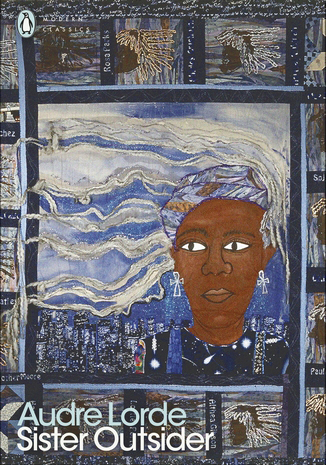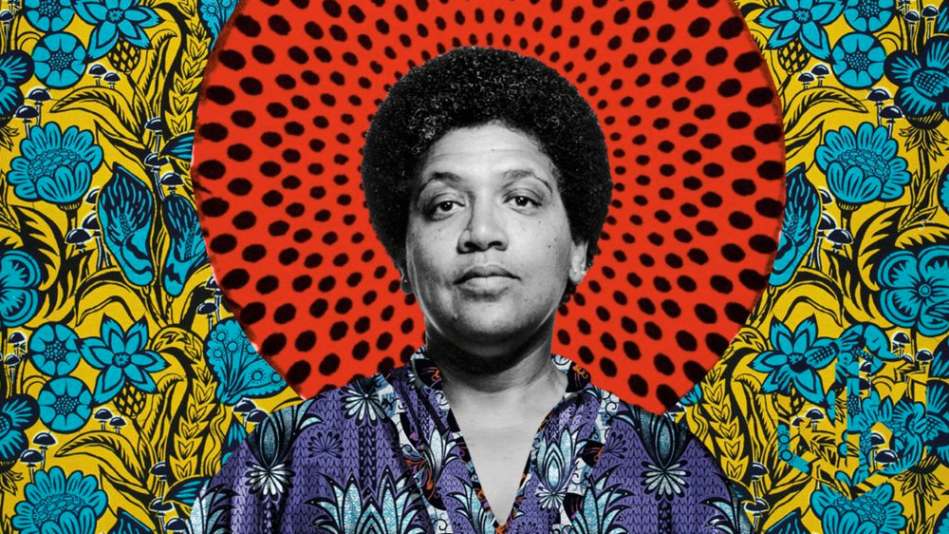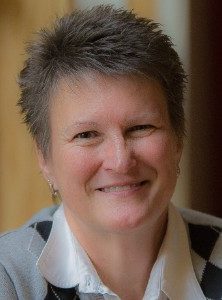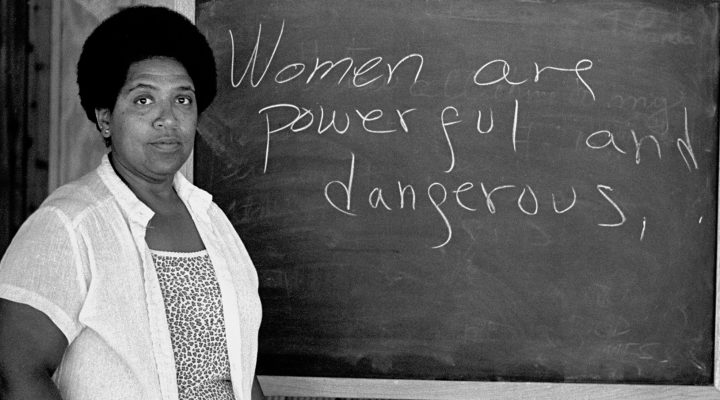I gave a talk for the Alliance of Baptists’ educational emphasis on anti-racism not long ago. Someone in the audience asked me to choose the one book I thought they should read. Immediately, I said, “Audre Lorde’s Sister Outsider.”
When the College Board changed its curriculum for Advanced Placement African American studies, it dropped Audre Lorde, among other Black writers and scholars, as too controversial. Under pressure from Florida to delete any “woke” content, the board removed topics such as Black queer studies, intersectionality and activism, and Black Lives Matter.
 Audre Lorde was a Black lesbian feminist writer, a narrator of intersectionality long before Kimberlé Crenshaw coined the phrase, someone who called out white supremacy and demanded the women’s movement do better in its inclusion and centering of women of color, lesbians and older women. I imagine if she were living today, she’d include queer, trans and nonbinary folks in that list too.
Audre Lorde was a Black lesbian feminist writer, a narrator of intersectionality long before Kimberlé Crenshaw coined the phrase, someone who called out white supremacy and demanded the women’s movement do better in its inclusion and centering of women of color, lesbians and older women. I imagine if she were living today, she’d include queer, trans and nonbinary folks in that list too.
Probably the reasons I named her and the reasons the AP curriculum has dropped her are similar.
She writes: “I am the face of one of your fears. Because I am woman, because I am Black, because I am lesbian, because I am myself — a Black woman warrior poet doing my work.”
‘Who said it was simple?’
Lorde demanded that she be seen as a Black lesbian, that her various identities not be separated but understood as shaping one another within interlocking systems of power that favored whiteness, maleness and straightness across government, education, family and the mainstream feminist and gay liberation movements.
In her poem “Who Said It Was Simple,” she uses a women’s march to illuminate racism and homophobia within the women’s movement. She wonders, “Which me will survive all these liberations.”
Yet Florida’s governor, Ron DeSantis, declared that including a unit on queer Blackness in the AP curriculum violated the state’s “Don’t Say Gay” law. After all, he quipped, queerness has nothing to do with Blackness. He sneered, “This course on Black history, what (is) one of the lessons about? Queer theory. Now, who would say that’s an important part of Black history, queer theory?”
Well, Audre Lorde, for one.
In her ground-breaking essay “Age, Race, Class, and Sex: Women Redefining Difference,” Lorde argues that in addition to white women’s racism and homophobia, Black lesbians also face discrimination among straight Black women. She writes, “Part of this need to misname and ignore Black lesbians comes from a very real fear that openly women-identified Black women who are no longer dependent upon men for their self-definition may well reorder our whole concept of social relationships.” These fears, she argues, “have served to keep many Black lesbians in hiding, caught between the racism of white women and the homophobia of their sisters.”
Lorde explains that systems of racism, sexism and heterosexism “stem from the same root — an inability to recognize the notion of difference as a dynamic human force, one which is enriching rather than threatening to the defined self, when there are shared goals”
The need for hierachy
No wonder she’s a threat to DeSantis and his ilk, who see difference as reason for hierarchies, criminalization, exploitation, banishment and violence. Embracing difference imperils white cis-gender heterosexual male dominance and the institutions that support it.
“Lorde is clear that dismantling white supremacy, heterosexism and patriarchy is her goal.”
Lorde is clear that dismantling white supremacy, heterosexism and patriarchy is her goal, and she reminds people within various oppressed communities that they cannot accept the white cis-gender heterosexual male vision of other groups. She writes:
Those of us who stand outside the circle of this society’s definition of acceptable women;
those of us who have been forged in the crucibles of difference — those of us who are
poor, who are lesbians, who are Black, who are older — know that survival is not an
academic skill. It is learning how to take our differences and make them strengths. For
the master’s tools will never dismantle the master’s house. They may allow us
temporarily to beat him at his own game, but they will never enable us to bring about
genuine change. And this fact is only threatening to those women who still define the
master’s house as their only source of support.
Lorde recommends we use our anger at the conditions of oppression to bring about radical change. She claims, “Focused with precision (anger) can become a powerful source of energy serving progress and change.”
What she says about the dominant culture is true of DeSantis and others who want to ban school discussions of racism and the culpabilities of white supremacy in U.S. history: “It wants racism to be accepted as an immutable given in the fabric of your existence.”
That leaves those of us who are antiracist, pro-woman, pro-LGBTQ “working in a context of opposition and threat, the cause of which is . . . the virulent hatred leveled against all women, people of color, lesbians and gay men, poor people — against all of us who are seeking to examine the particulars of our lives as we resist our oppressions, moving toward coalition and effective action.”

‘We were never meant to survive’
Lorde, writing in the late 1970s and early 1980s, could have been speaking about what’s happening in Florida and many other places in the U.S. today. In her poem, “A Litany for Survival,” she reminds us to speak up against these outrages against ourselves and others. She says to remember “we were never meant to survive.” So when we are afraid, we should still speak. She writes:
and when we speak we are afraid
our words will not be heard
nor welcomed
but when we are silent
we are still afraid
So it is better to speak
remembering
we were never meant to survive.
In many places, and with Christian support, people like DeSantis are attempting to ban books, prevent discussion of ideas, cancel people, teach revisionist history and deny the existence of ongoing racism, sexism, heterosexism, ageism, ableism and classism in the U.S. They are harming people — trans, nonbinary, queer, Black, indigenous, and people of color, people in poverty, women across their differences, immigrants — all of us are not meant to survive in their dystopian vision of a Christian nation.
“All of us are not meant to survive in their dystopian vision of a Christian nation.”
We on the Christian Left must speak out — as Christians — against this perversion of faith in Jesus that vilifies difference, excludes God’s diverse children, and imposes a Gilead-like theocracy, lest we find ourselves living under a white nationalist regime.
Again, Audre Lorde’s wisdom speaks to us in our moment: “I am not free while any woman is unfree, even when her shackles are very different from my own. And I am not free as long as one person of color remains chained. Nor is any one of you.”

Susan Shaw
Susan M. Shaw is professor of women, gender and sexuality studies at Oregon State University in Corvallis, Ore. She also is an ordained Baptist minister and holds master’s and doctoral degrees from Southern Baptist Theological Seminary. Her most recent book is Intersectional Theology: An Introductory Guide, co-authored with Grace Ji-Sun Kim.


